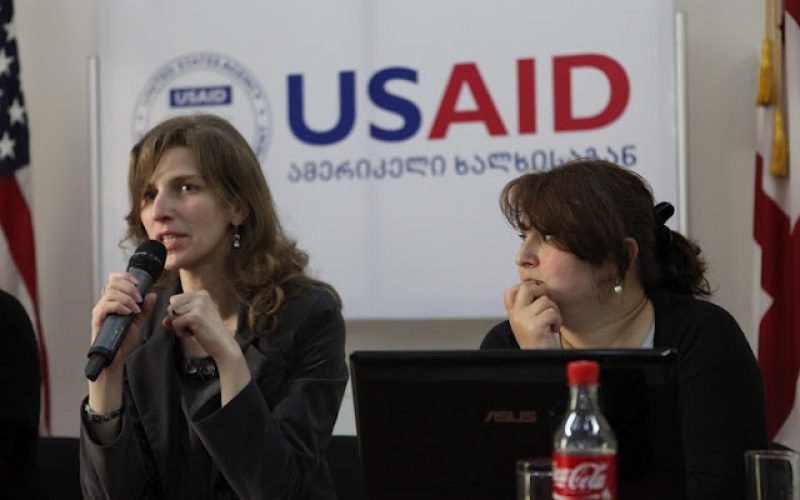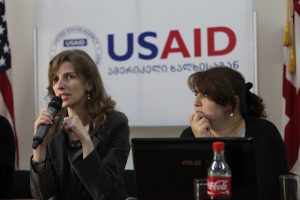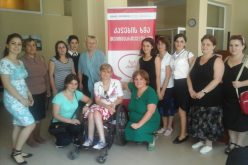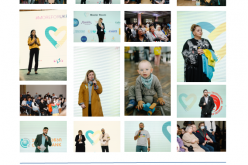დემოკრატიული ჩართულობის ცენტრები სტაბილური მომავლისკენ

2011 წლიდან, საქართველოს 10 რეგიონში დემოკრატიული ჩართულობის ცენტრები ფუნქციონირებენ. ისინი მოქალაქეებს, მედიას, სამოქალაქო საზოგადოებას, მთავრობასა და კერძო სექტორს საჯარო დისკუსიების გასამართად ნეიტრალურ და მიუკერძოებელ სივრცეს სთავაზობენ. ცენტრები ღიაა ნებისმიერი მოქალაქისთვის, მიუხედავად მისი პოლიტიკური თუ სოციალური კუთვნილებისა.

ნინო ჟვანია, დემოკრატიული ჩართულობის ცენტრების ქსელის აღმასრულებელი დირექტორი
დემოკრატიული ჩართულობის თითოეული ცენტრი აღჭურვილია ყველა საჭირო თანამედროვე რესურსით, მათ შორის საკონფერენციო დარბაზისა და შეხვედრების ოთახის ონლაინ დაჯავშნის სერვისით, კომპიუტერებით და ბიბლიოთეკით. აქ მუშაობენ პროფესიონალები, რომლებსაც აქვთ შესაბამისი გამოცდილება და ფართო საზოგადოებრივი კონტაქტები რეგიონში. „დემოკრატიული ჩართულობის ცენტრები აწყობენ საჯარო განხილვებს რეგიონისთვის მნიშვნელოვან თემებზე და იწვევენ ისეთ მხარეებს, რომლებიც სხვა შემთვევაში ერთად სასაუბროდ არ დასხდებოდნენ; ან საუბრობენ იმ საკითხებზე, რომელზეც დისკუსია სხვა შემთხვევაში არასდროს დაიწყებოდა. ცენტრები რიგით მოქალაქეებს აძლევენ საშუალებას ჩაერთონ გადაწყვეტილების მიღების პროცესში და ამით თავიანთ ქალაქებსა თუ სოფლებს რეალური სარგებელი მოუტანონ“ – ამბობს ნინო ჟვანია, დემოკრატიული ჩართულობის ცენტრების ქსელის დირექტორი და იქვე დასძენს: „თუმცა, ჩემი აზრით, დემოკრატიული ჩართულობის ცენტრების ყველაზე დიდი ძალა არის ნდობა, რომელიც მათ ხუთი წლის განმავლობაში ღია და მიუკერძოვებელი საქმიანობის შედეგად მოიპოვეს.“

ჟურნალისტები რუსთავის დემოკრატიული ჩართულობის ცენტრში არჩევნების დღეს
სწორედ ამ ნდობის დამსახურებაა, რომ ცენტრებით აქტიურად სარგებლობენ ადგილობრივი ჯგუფები – 2011 წლიდან მოყოლებული, დემოკრატიული ჩართულობის ცენტრებში გამართულ 21 000 დისკურსიაში ნახევარმა მილიონმა ადამიანმა მიიღი მონაწილეობა. ცენტრების არსებობა განსაკუთრებით მნიშვნელოვანია რეგიონებში, ვინაიდან იქ მოქალაქეთა ჩართულობისა და აქტივიზმის წასახალისებლად საკმაოდ მწირი რესურსებია. მოქალაქეთა ინფირმირებისა და ჩართულობის კუთხით ცენტრებმა განსაკუთრებული როლი ითამაშეს 2016 წლის საპარლამენტო არჩევნების პერიოდში: შეიქმნა საარჩევნო მედიაცენტრები, საიდანაც ყველა დაინტერესებული პირი ინფორმაციას იღებდა საარჩევნო საკითხებზე. პოლიტიკური პარტიების პროგრამებზე, საარჩევნო კანდიდატებზე და ა.შ. 2016 წლის 26 ივლისიდან 8 ოქტომბრამდე დემოკრატიული ჩართულობის ცენტრებმა არჩევნებთან დაკავშირებულ 450 ღონისძიებას უმასპინძლეს, რომელსაც 10 000-მდე მოქალაქე დაესწრო.
USAID-ის სამოქალაქო საზოგადოების განვითარებისა და მოქალაქეების ჩართულობის პროექტი (ACCESS), რომელსაც აღმოსავლეთ-დასავლეთ მართვის ინსტიტუტი (EWMI) ახორციელებს, 2015 წლიდან დემოკრატიული ჩართულობის ცენტრებს ეხმარება, რომ დამოუკიდებელ და მდგრად ორგანიზაციებად ჩამოყალიბდნენ. ფინანსური დახმარების გარდა ACCESS-ი ცენტრებს სტრატეგიული და პროფესიული განვითარების კუთხითაც უწევს მხარდაჭერას. ცენტრები 2016 წლის მაისში დამოუკიდებელ ქსელად დარეგისტრირდა, რომელსაც 22 თანამშრომელი ყავს და მმართველობის დამოუკიდებელი სტრუქტურა გააჩნია. ამჟამად დემოკრატიული ჩართულობის ცენტრების ქსელი გარდამავალ ეტაპზეა, თუმცა ეს მათ ხელს არ უშლის განაგრძონ საკუთარი მისიის შესრულება – დემოკრატიული დიალოგის ხელშეწყობა რეგიონებში.
ACCESS-ის გარდა ალტერნატიული დაფინანსების მოსაძიებლად ცენტრებში დაინერგა ფასიანი სერვისები: საკონფერენციო ოთახის გაქირავება (მხოლოდ გარკვეული ჯგუფებისთვის), შეხვედრების დაგეგმვა და ორგანიზება, ღონისძიებების უზრუნველყოფა კვებით და ა.შ. ცენტრებმა უკვე 100-ზე მეტ ფაისან ღონისძიებას უმასპინძლეს. ქსელი ასევე ამყარებს კონტაქტებს სხვადასხვა ორგანიზაციასთან როგორც ადგილობრივ, ასევე ეროვნულ დონეზე. მაგალითად, უკვე ოფიციალურად გაფორმდა თანამშრომლობა ნატოსა და ევროკავშირის საინფრომაციო ცენტრთან.
იმისათვის, რომ ცენტრებმა კიდევ დიდ ხანს შეძლონ საკუთარი მანდატის შესრულება, აუცილებელია მათ ჰქონდეთ საოფისე სივრცე უფასოდ. ამ მიზნით ცენტრები აქტიურად მუშაობენ ადგილობრივ მთავრობებთან, რათა მათ გადაეცეთ ალტერნატიული ფართები დროებით სარგებლობაში. ცენტრების სტაბილურობაში და გაძლიერებაში ჩადებული ინვესტიციები იმედს იძლევა, რომ მომავალში დემოკრატიული ჩართულობის ცენტრები წარმატებით გააგრძელებენ მუშაობას და სამოქალაქო საზოგადოებას მეტ სარგებელს მოუტანენ.














Leave a Reply